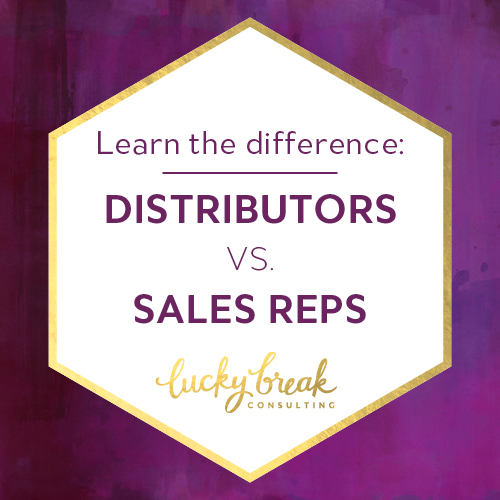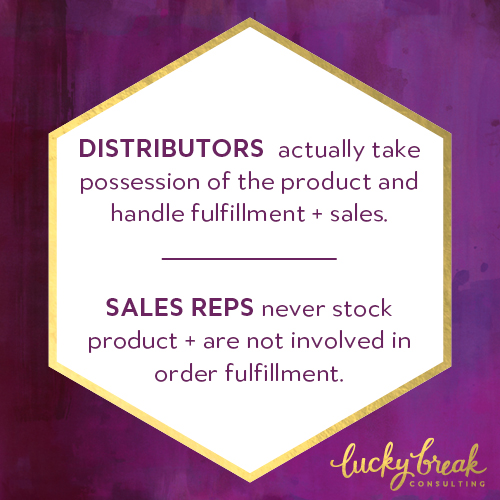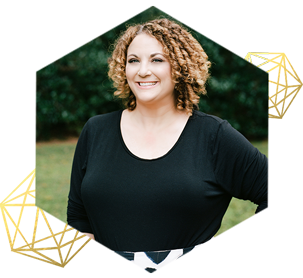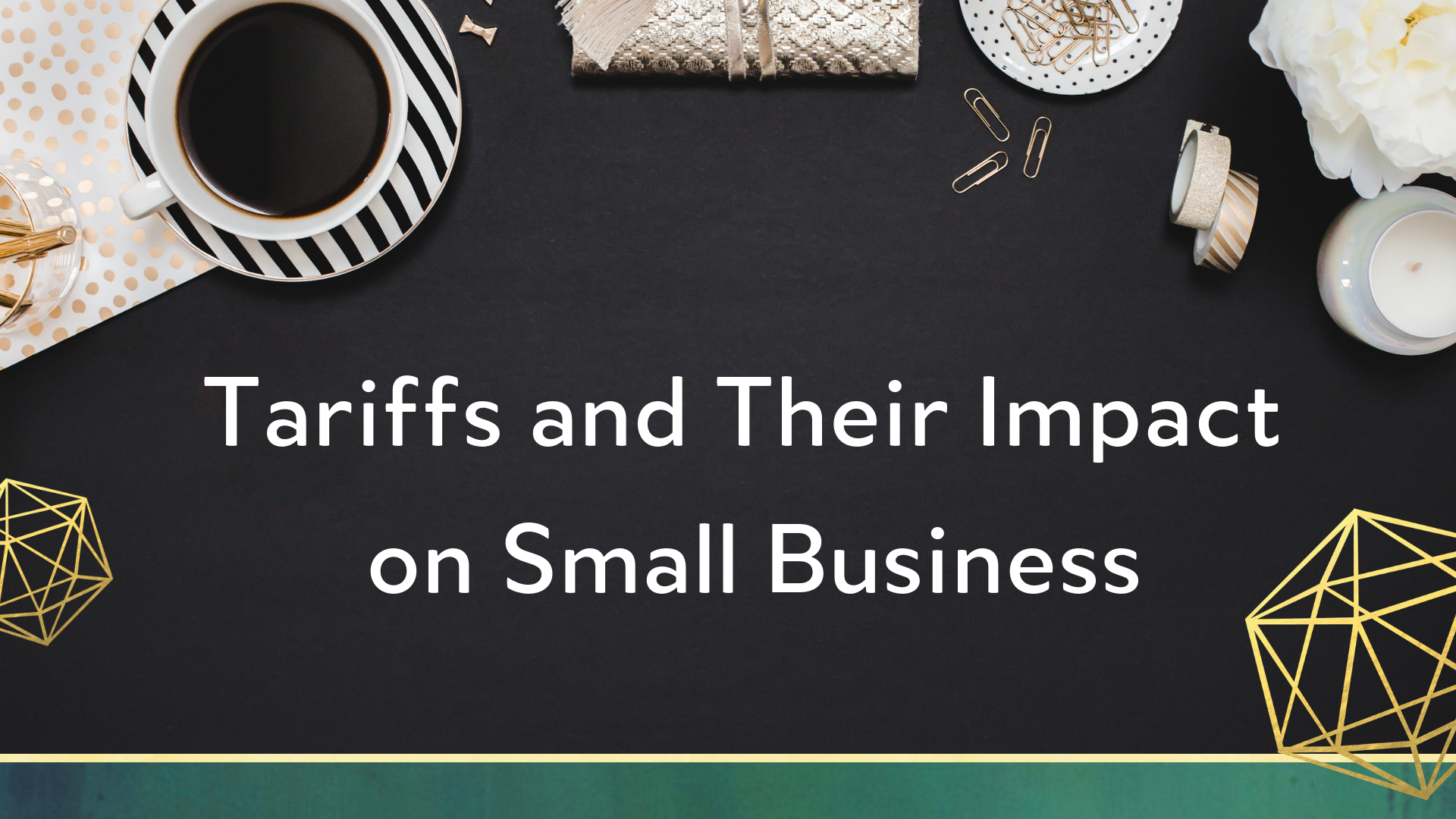I often see two concepts confused with one another + I thought it might be helpful to explore these two avenues of getting your product out into the world on a larger scale. Are you game? Hope so!
Distributors are companies that purchase products + house them temporarily in their own facilities, before reselling them to wholesale buyers. They employ their own in-house sales reps who cultivate brand awareness + build relationships with wholesale buyers in a clearly defined territory. Distributors can be key allies domestically and, most especially, when working overseas.Distributors always receive preferential pricing- a price point that’s below wholesale- though the actual pricing structure will vary by product category + order volume.
Sales reps are seasoned sales professionals who represent your brand to wholesale buyers with whom they’ve already cultivated a relationship.They make the introductions, answer product questions, make the sale and offer post-sale support to wholesale stockists. That support might come in the form of helping merchandise your products in-store, keeping buyers aware of new product launches + promotions or passing on product feedback to the maker. They collect a commission in honor of their efforts. For most of the creative brands I work with in the apothecary, paper, housewares + gift space, that commission is typically 15% of the order total.
Let’s take a peek at a few graphics that will hopefully help you better imagine these sales avenues…
The RETAIL sales model look like this:
The WHOLESALE sales model look like this:
The WHOLESALE sales model that involves SALES REPS look like this:
The DISTRIBUTOR sales model look like this:
One important thing to keep in mind: distributors actually take possession of the product. They warehouse it + employ their own sales team to promote it.Because they are actually handling fulfillment + sales (and because they’re ordering in large volumes), they receive better-than-wholesale pricing. Sales reps, in contrast, never stock product, so they’re not involved in order fulfillment. They most often represent a whole stable of complimentary brands + help develop a territory for those brands, but they simply pass the order onto the maker + collect a check for those efforts.
Keep in mind,too, that everyone in those sales models (save for the end consumer) is working in order to realize some sort of profit. What does that mean for you? Well, as links are added in the chain, then one of a few things needs to happen:
1. As a maker, you might elect to decrease your profit margin (which isn’t the best solution) in order to build in enough margin for the other links in the chain. That means you make less money on each sale
2. This can often be balanced by higher prices in overseas markets. For example, I’ve been selling my apothecary brand through overseas distributors in Europe + the Middle East for many years now. Their retail price in those countries is always higher than the retail price of my products here in the U.S. Their costs are higher, too, thanks to increased freight costs, import duties + taxes, etc.
3. If you’re working with a domestic distributor and you don’t want to carve into your own profit margins, well,then it’s time to fire up the economies of scale and get those bad boys working in your favor. By ordering my raw materials in bulk, manufacturing in larger quantities and refining my creation process, I’m able to offer distributors significant discounts over wholesale costs, while still clearing wholesale-style profits. Added bonus? Because I’ve ramped up production of my apothecary products to meet distributor levels, I reap even more profits on those same products when I sell them domestically through traditional wholesale or retail arrangements. Huzzah!
I’m not aware of many small creative brands who use a distributor. Because they work in high volumes + receive preferential pricing, many startup brands either aren’t ready to work under this sort of arrangement or they’re unwilling to accept this type of pricing structure because they aren’t pricing correctly to begin with. But I implore you not to count out distributors out if scaling your company or exporting overseas is part of your long-term game plan.
Wish you could tag someone in to help you dig deep + connect with the core of your brand? I happen to teach a knock-your-socks-off branding course for creative entrepreneurs.
Interested in polishing up your wholesale program to make it attractive to buyers + sales reps alike? LBU, my seven week, how-to-wholesale-intensive might be right up your alley.
If you’ve been approached by sales reps + distributors, what questions do you have about making that leap?










Hi,
For the past 6 years, I have had a store on ebay selling mid century housewares & decor. I would now like to sell new items.
Many years ago, I managed a gift store & we ordered our inventory through manufactures’ reps.
Do you think that a manyfacturers’ rep would sell to someone who sells on ebay?
Thank you for your attention to my email!
Wow! Thank you for putting this up! You’ve just spoken to me directly. I’ve gained more knowledge on this by reading through.
Thank you once again!